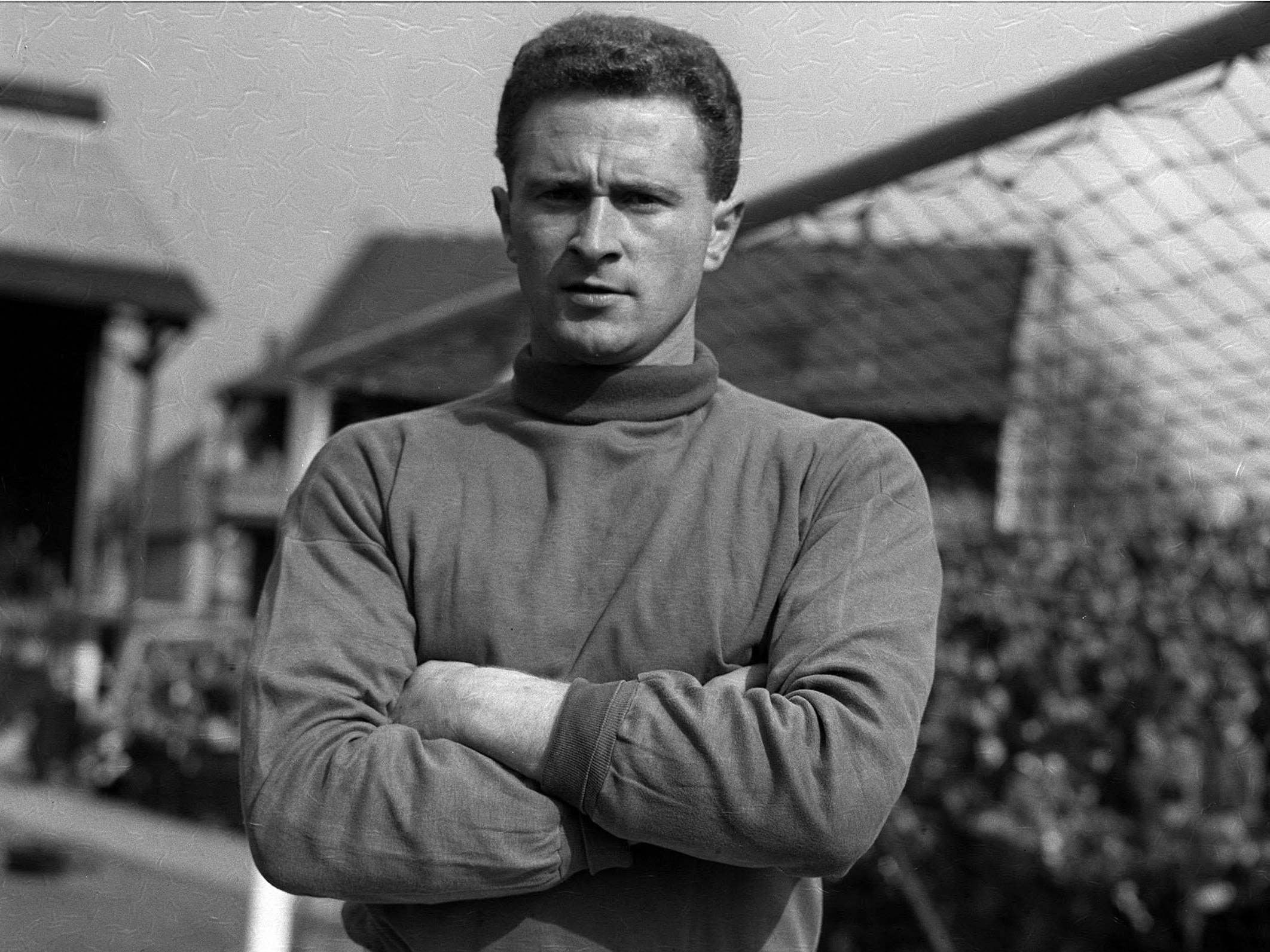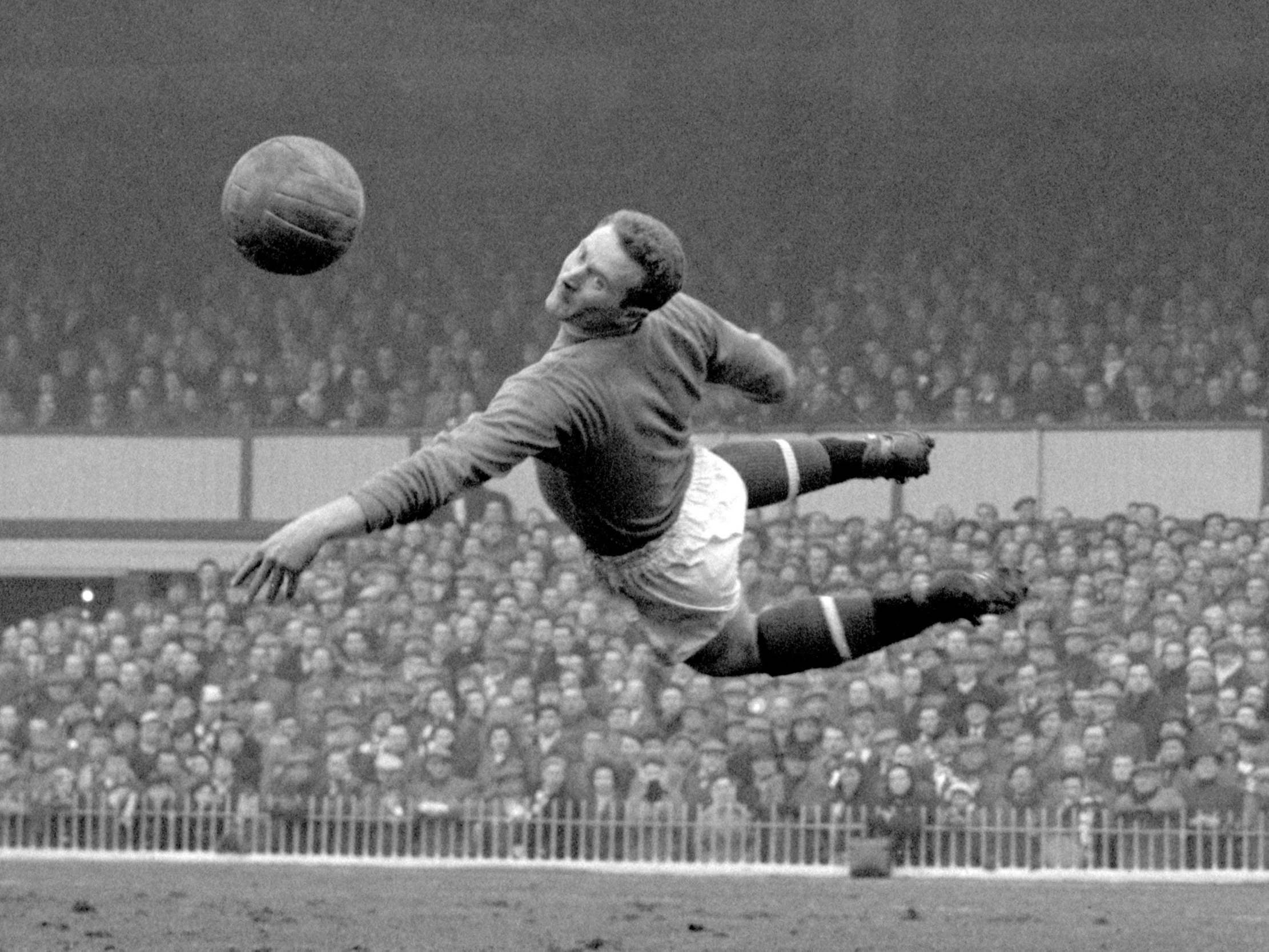Harry Gregg: Manchester United goalkeeper who survived the Munich air crash
Gregg was regarded as one of the all-time great keepers and was a key figure in Matt Busby’s legendary squad

Your support helps us to tell the story
From reproductive rights to climate change to Big Tech, The Independent is on the ground when the story is developing. Whether it's investigating the financials of Elon Musk's pro-Trump PAC or producing our latest documentary, 'The A Word', which shines a light on the American women fighting for reproductive rights, we know how important it is to parse out the facts from the messaging.
At such a critical moment in US history, we need reporters on the ground. Your donation allows us to keep sending journalists to speak to both sides of the story.
The Independent is trusted by Americans across the entire political spectrum. And unlike many other quality news outlets, we choose not to lock Americans out of our reporting and analysis with paywalls. We believe quality journalism should be available to everyone, paid for by those who can afford it.
Your support makes all the difference.Harry Gregg, who has died aged 87, was regarded as one of the finest goalkeepers of all time, although the plaudits and back-page bouquets for his successes at Manchester United and for Northern Ireland were overshadowed by the courage he displayed as a survivor of the 1958 Munich air disaster that killed 23 people, including many of his United teammates.
Having crawled from the wreckage of the club’s stricken Elizabethan airliner, which had failed to take off and smashed into buildings at the end of a slushy runway on 6 February 1958, Gregg ignored a warning by the pilot to leave the scene of the crash as fuel tanks might explode at any moment. Instead, he stepped back into the twisted fuselage to rescue a mother and a baby, then applied first aid to his teammate Jackie Blanchflower. Finally, though disoriented by the confusion around him, Gregg helped to comfort his manager, Matt Busby, who appeared barely alive, until professional medics arrived at the scene.
Twenty-three people, including eight footballers and three club officials, lost their lives in the tragedy. Gregg escaped with a superficial face wound. He recoiled when dubbed a hero, maintaining that he had merely reacted instinctively to an extreme situation.
At his professional peak, in the late 1950s and early 1960s, there was no bolder, more valiant or more acrobatic custodian of the Manchester United net. Having begun his career in Northern Ireland with Linfield before moving to Coleraine, he came to England to enlist with Second Division Doncaster Rovers in 1952. Two years later he earnt the first of 25 full international caps.
He was soon noticed by Manchester United manager Matt Busby and, in December 1957, with the Red Devils having lifted the First Division championship for two consecutive seasons and already engaged in their second successful European campaign, the 25-year-old became, at a cost of £23,500, the world’s most expensive goalkeeper. Gregg’s introduction coincided with a nine-game unbeaten run and progress to the semi-finals of the European Cup.
Gregg had the effect of a culture shock on the Red Devils’ defence. From the beginning he asserted that the penalty area was his to control and whoever was in his way should make way when the highly vocal newcomer charged from his line.
The team’s confidence, which had slipped a notch or two before the team shake-up, burgeoned anew and in February 1958 the future beckoned alluringly.
Then, on the way home from confirming their place in the last four of the European Cup with a thrilling draw against Red Star in Belgrade, United’s plane crashed at Munich and the heart of a wondrous young team was ripped out.

A mere two weeks on from the calamity, Gregg was ready for United’s next match, an FA Cup meeting with Sheffield Wednesday, and he performed magnificently as stand-in boss Jimmy Murphy guided the ravaged Reds to the FA Cup Final. (United lost 2-0 to Bolton Wanderers.)
The following month Gregg displayed the form of his life as Northern Ireland battled its way to the quarter-finals of the World Cup in Sweden, and was voted the best keeper in the tournament.
On his return to League duty, Gregg excelled as a key figure in Matt Busby’s reconstruction of United into a major force, missing only one League outing as somehow they contrived to finish as First Division runners-up in 1958-59, and emerging as one of the club’s dominant personalities.
Thereafter he was plagued by injuries that kept him out of the honours accumulated by the Red Devils in the subsequent decade. Unlucky on the field, he was pursued by tragedy off it, losing his wife, Mavis, to cancer.
In 1966 he joined Stoke City, for whom he played only twice before embarking on a management career that took in Shrewsbury Town, Swansea City, Crewe Alexandra and Carlisle United. In addition he coached at various clubs, including Manchester United under Dave Sexton between 1978 and 1981, before retiring to Northern Ireland in 1987, later becoming a hotelier.
He is survived by his second wife Carolyn and five children. A daughter predeceased him.
Harry (Henry) Gregg, footballer and manager, born 27 October 1932, died 16 February 2020
Subscribe to Independent Premium to bookmark this article
Want to bookmark your favourite articles and stories to read or reference later? Start your Independent Premium subscription today.
Join our commenting forum
Join thought-provoking conversations, follow other Independent readers and see their replies
Comments